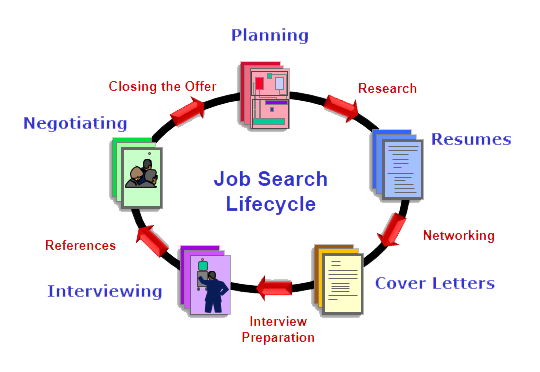Some Background About the Job Search Process
Looking for employment can be exciting, but it can also be a challenge ... especially if you're recently unemployed. It is my hope that this electronic book and its associated job search tools will provide you with the knowledge and motivation to be as effective as you can be in your job search.
You’ll find a variety of job search concepts in the Job Search eBook and several tools to help you out. For example, the Job Interview Trainer includes over 600 practice questions. These questions were accumulated, used, and modified over a period of 20+ years. They can be organized in a variety of ways to meet your particular need. You’ll also find information on resumes, planning your search, and many useful suggestions to give you an edge over other job candidates.
Before proceeding with the rest of this book, I want to share a word of caution about searching for a job. First and foremost, there is no magic formula. If such a formula existed, we’d all have the job of our dreams.
As the following graphic suggests, a job search has a circular lifecycle. A successful strategy is an ongoing process that entails regular adjustment.

Indeed, a job search is more an art than a science. Each person, profession, geographic area, industry, employer mix, etc. can be very different. As such, you are asked to take the concepts presented here and put them into the context of your own personal job-search situation. I can give you the tools, but I can’t plan your job search, write your resume, or stand in for you on a job interview.
Fortunately, using Job Hunter Pro will give you significant insight into the job search and interviewing process. If you view knowledge as power, you will have much more power by using the information and tools provided by Job Hunter Pro.
Internet vs. Traditional Job Search
When it comes to job search, the Internet is at the top of the heap. It continues to evolve as creative minds develop new ideas and services. In addition to the obvious value of the many job search, social networking and career sites that can be found, it is also a valuable source of information about the organizations that are hiring, their goals and their culture.
While the Internet is at the top of the heap for most types of job search, there are some industry segments that continue to depend upon paper resumes and the like. There is still relevancy to newspaper ads, career and job fairs, and a host of other more traditional job search options.
As you go through Job Hunter Pro, you'll find that the most of the concepts and tools presented apply to both traditional and Internet-based job searches. Regardless of whether you're focusing on using the Internet or are using a less technologically-focused approach, you still need to develop a personal marketing plan, create an effective resume, utilize focused cover letters, develop good job interviewing skills, etc.
An important message found throughout this book is that every person has different job search needs. As a result, you'll discover flexible learning paths that will help you choose an approach that will best fit with your needs, background, and job market.
Introduction
Key Points